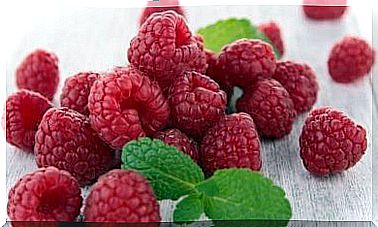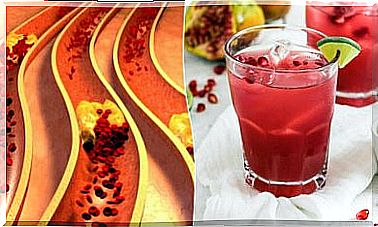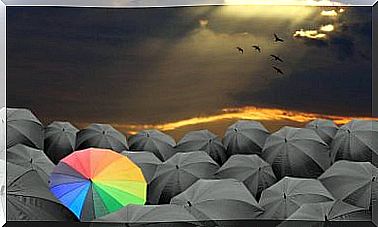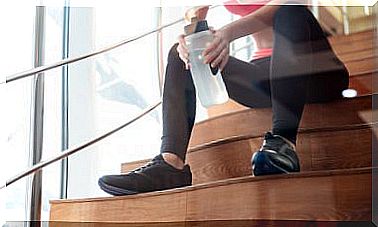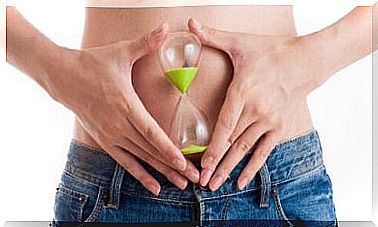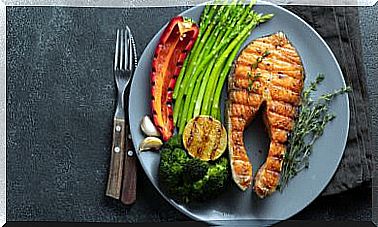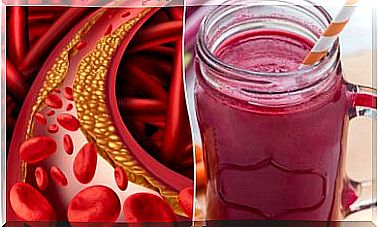6 Symptoms Of A Lack Of Vitamins That Can Be Read On The Face
The ancient Greeks said that the face was the reflection of the spirit; Today, skin conditions are considered to be a sign of certain health problems.
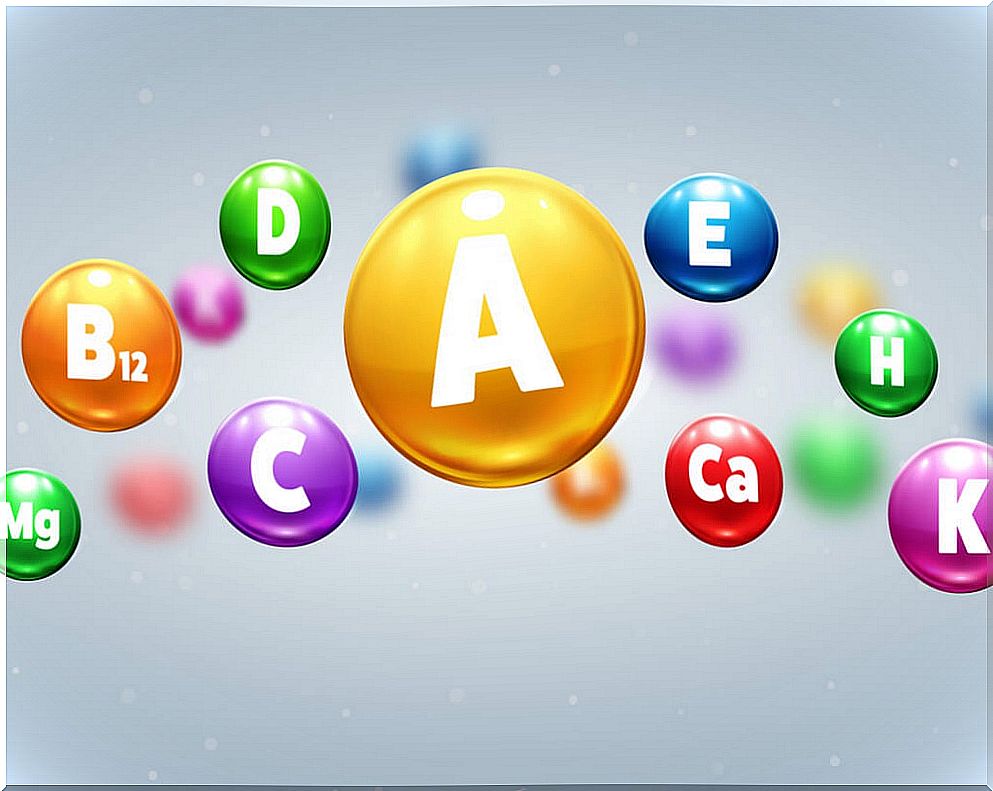
When something does not go well in the body, the skin reflects it automatically; therefore, we show a decayed and withered appearance. In this sense, the lack of vitamins and other nutrients is very evident.
As well as in the psychic sphere, the deficit produces fatigue and apathy in regard to the skin, it can manifest itself through acne outbreaks, spots, paleness, among others.
Although it is true that the degree of notoriety of the lack of vitamins can vary according to its severity, the truth is that, once you notice that there is something different in the face, it is not left as unnoticed as you would like.
Below we will tell you which are the most common symptoms that you should take into account.
6 symptoms of lack of vitamins
1. Paleness
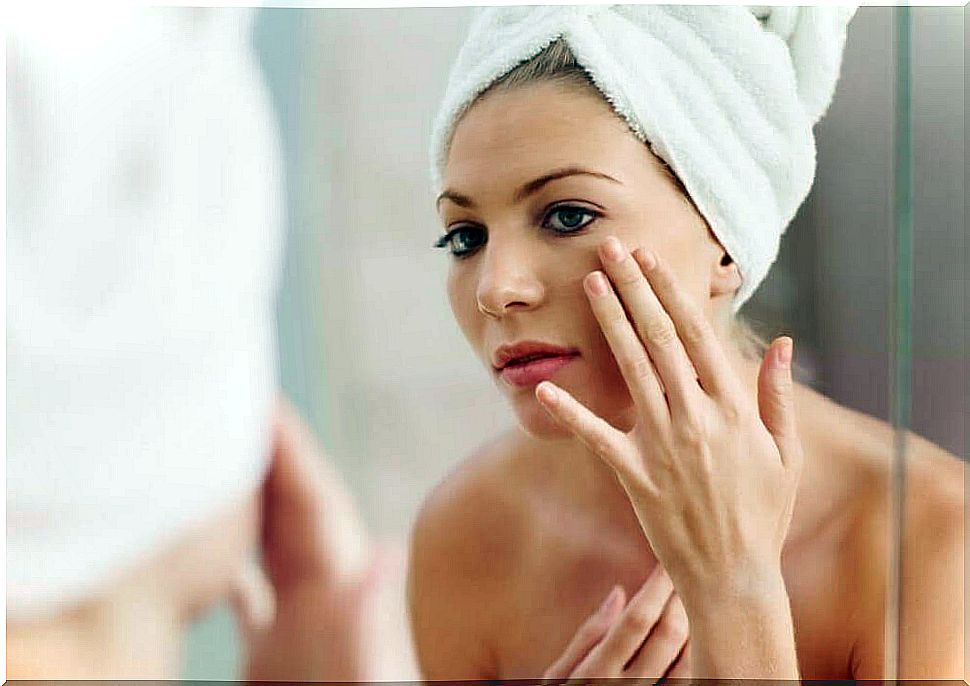
If we are much paler than usual, it may be that we have a lack of B complex vitamins, and more specifically, B12. In general, this type of deficit is more common during the winter, when sun exposure is minimal.
The deficiency of this vitamin also produces fatigue and can promote depression. To make up for this lack, doctors recommend increasing your consumption of meat and seafood.
On the other hand, if our lips have lost their natural pinkish tone and are rather pale, this can be a symptom of a lack of iron.
To compensate for the lack of iron, we should eat a greater amount of red meat and temporarily avoid products with a high calcium content because they prevent the absorption of iron.
2. Dryness
Dry skin is also one of the symptoms of a lack of vitamins A and C. Remember that vitamin A has an antioxidant effect, so its deficiency implies a weak protection against free radicals.
Vitamin C is essential to keep the immune system strong and to carry out the synthesis of collagen, which is a substance used to make new hair, regenerate the skin, and make nails and connective tissues grow. On the other hand, vitamin C contributes to the absorption process of iron.
In order to obtain both vitamins, it is advisable to consume more often: kale, bell peppers (particularly red, orange and yellow varieties), cabbage, carrots, romaine lettuce, spinach, apricots, grapefruit, oranges and plums.
3. Weak hair
If we have dry, brittle and dandruff hair, it can be a sign of a lack of biotin, also known as vitamin B7. Its deficit is usually common after having spent a season taking antibiotics.
To increase the level of vitamin B7 we need to eat more frequently: meat, fish, vegetables, fruits, mushrooms and legumes.
If instead of a dry hair we have a damp hair, this can also be a clear alarm signal. Dandruff is caused by a lack of vitamins B2 and B6, among other factors. Also due to a deficiency of essential minerals such as zinc or magnesium.
To compensate for this deficit, we must incorporate foods such as dark chocolate, peanuts, carrots, eggs, bran, walnuts, fish and beans into the diet.
4. Puffy eyes
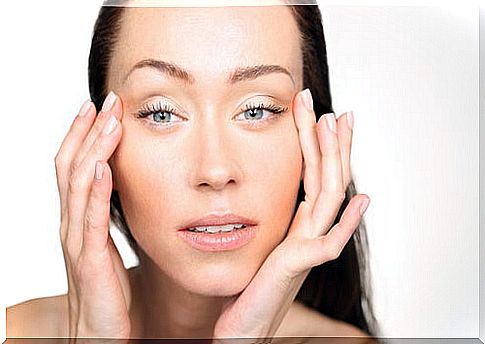
Another symptom of a lack of vitamins or minerals is swollen eyes. If, in addition to this, we also have swelling in the limbs, our body may need more iodine. On the other hand, if we present photosensitivity, it may be that we have a lack of vitamins A and B2.
To solve this, we can add a little iodized salt to our meals. Likewise, we must increase the consumption of seafood, dairy products, brewer’s yeast, almonds, green leafy vegetables, legumes, eggs and nuts.
5. Bleeding in the gums
Another symptom that reveals a lack of vitamins, specifically K and C, is bleeding gums. So, in case we present a regular bleeding, in addition to going to the dentist for an evaluation, we can take advantage of increasing our consumption of citrus fruits and green leafy vegetables.
6. Acne
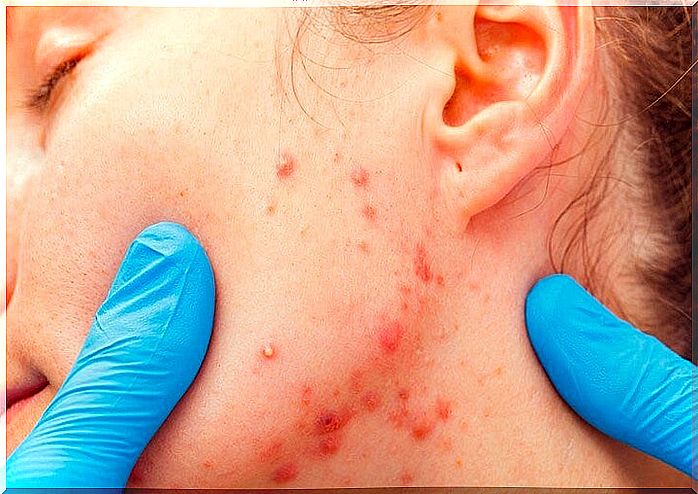
According to various research, acne can be a symptom of a lack of vitamins A and E. Therefore, many doctors recommend reviewing and correcting eating habits to complement acne treatment.
Vitamin A can be found in foods such as fish, egg yolks, green and yellow vegetables, liver. While vitamin E can be found in wheat germ, olive oil seeds, spinach, cauliflower, and liver.
Consultation with the doctor
In case we notice some of these symptoms and have doubts about it, it is important that we immediately go to the doctor for an evaluation. Once we have performed a blood test, the professional will be able to evaluate if there is a lack of vitamins or other nutrients.
